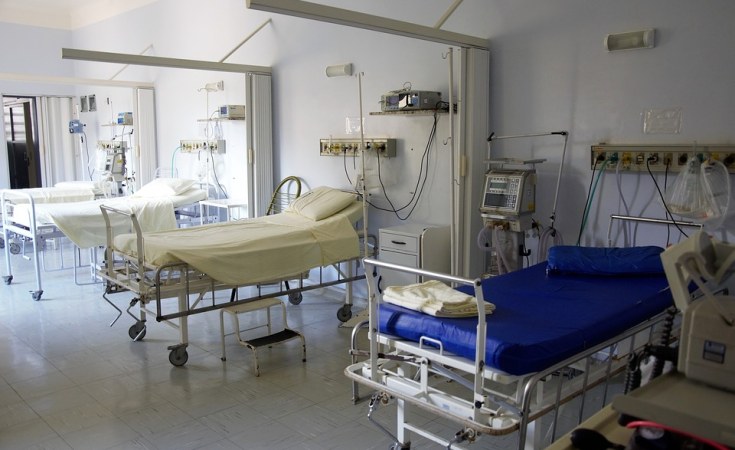The world is facing significant demographic changes. In addition, we are more at risk for new infectious outbreaks than ever before. Climate change threatens to make all these challenges even worse.
While they may seem intractable, experience has shown that global cooperation provides a proven path to progress. Two decades of investment has halved child mortality. But as new health challenges emerge, an urgent reappraisal of the global health system is needed to ensure we have a system that is fit to meet the challenges of tomorrow.
Globally, the number of people dying from communicable diseases, although still significant, has declined substantially. Yet those prematurely dying of non-communicable disease – like cardiovascular disease, stroke, and cancers – are on the rise. By 2040, non-communicable disease is expected to account for over half of the global burden of disease.1
Ageing populations, pollution, climate change and migration and conflict are intensifying and adding to our health challenges. Together – these are putting increasing pressure on already under-resourced health systems.
This matters to us all. The COVID-19 pandemic proved that our collective health is only as strong as the weakest health system. It was also a stark reminder of inequities that pervade health , both within and between countries.
No matter where you are – whether in Kenya or in Norway – everyone should have access to essential healthcare services and medicines. It is why the Sustainable Development Goals are about ensuring healthy lives and well-being at all ages and include universal health coverage as a core objective.
The pursuit of universal health coverage is about women giving birth with the support of a health professional . Children being vaccinated against disease. And it doesn’t just mean access to health care . It means protection from ill-health. It is also about reducing risk for lifestyle related diseases and ensuring treatment for conditions like hypertension and diabetes that are common in all countries.
As a global community, we are far away from reaching this goal – and reform is needed if we are going to achieve it.
Over the last two decades, financial support for health in developing countries h as increased substantially. Global health initiatives – like the Coalition for Epidemic Preparedness Innovations (CEPI); The Global Fund to fight AIDS, Tuberculosis and Malaria; Gavi, the Vaccine Alliance ; the Global Financing Facility for women, children, adolescents; and Unitaid – have done much to drive progress.
They complement domestic resources, bilateral aid funding, the WHO, other UN agencies, and the World Bank. Together all of this make up a global ecosystem of actors working with countries to invest in, and improve, health.
There have been big wins.Maternal mortality declined by a third between 2000 and 20202 and the number of deaths from HIV/Aids more than halved in the 15 years to 2019.3 The price of essential medicines has also fallen, helping to transform health systems.
But while the global health ecosystem has made great strides, it has grown increasingly fragmented and complex and change is needed.
For universal health coverage to become a reality, big commitments made in Geneva or New York are not enough. Each and every country requires its own, tailored bottom-up plan for health that is increasingly delivered by domestic financing. And when these plans are created, the global donor community needs to recognise, back, and support them, not implement, or impose, interventions that aren’t aligned with them or are seen as separate plans and programs.
While the lessons from the COVID-19 pandemic are still fresh, we believe that it is the right time to take stock of how the global health ecosystem, and the financing that underpins it, can best meet the health challenges of today and tomorrow.
That is why the governments of Kenya and Norway are co-chairing a process called the Future of Global Health Initiatives, to look at how the global health system can work in the most effective, efficient, and equitable way to support countries to strengthen health systems.
For universal health coverage to be achieved it ultimately needs to be self-financed by recipient countries. It also requires the global community to challenge the status quo. We cannot fund specific health programs as recurrent costs and from afar. Countries need to be in the driving seat and need to increase their domestic health finance to support and enable economic development.
This will be difficult. It will take time. But we need to hold firm to a vision of a world where every person, no matter who they are, or where they are born, can access the healthcare they need in the place where they live. In doing so, we can create the resilient and equitable health systems that our changing world demands. We know from recent experience that that is everyone’s gain.
Cabinet Secretary Susan Nakhumicha Wafula, Ministry of Health, Kenya, and Minister of International Development Norway Anne Beathe Tvinnereim
1 IHME https://vizhub.healthdata.org/gbd-foresight/
2 https://data.unicef.org/topic/maternal-health/maternal-mortality/


